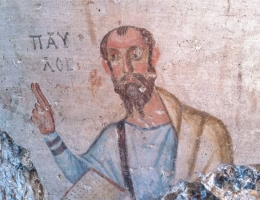Early Christian perspectives on sin, as examined in this article, contrast with Pauline and Augustinian views. The Apostolic Fathers believed sin was acquired through personal choices rather than being an inherent condition. They emphasized human reason and moral effort to overcome sin, differing significantly from the idea of inherent sinfulness and helplessness. This analysis highlights the early Christian focus on ethical humanism and rationalism in addressing sin.
Dr. Dale B. Martin’s research delves into the contradictions between Paul’s letters and the Acts of the Apostles. This article explores his findings on the differences between the Paul of Acts and the Paul of the Epistles.
Christianity in its early centuries was marked by a remarkable diversity of beliefs and practices. Competing sects, such as the Marcionites and Gnostics, presented various theological perspectives. This article explores the theological diversity and the contested nature of early Christian beliefs, questioning which version, if any, can be considered the true Christianity.
This article explores potential connections between Paul the Apostle and the Herodian family, using evidence from the New Testament, early Church literature, Rabbinic texts, and Josephus. It examines how Paul’s Roman citizenship, influence in Jerusalem, and inclusive teachings may reflect a Herodian religio-political orientation, suggesting Paul’s background and actions align with Herodian interests, raising new questions about his identity.






